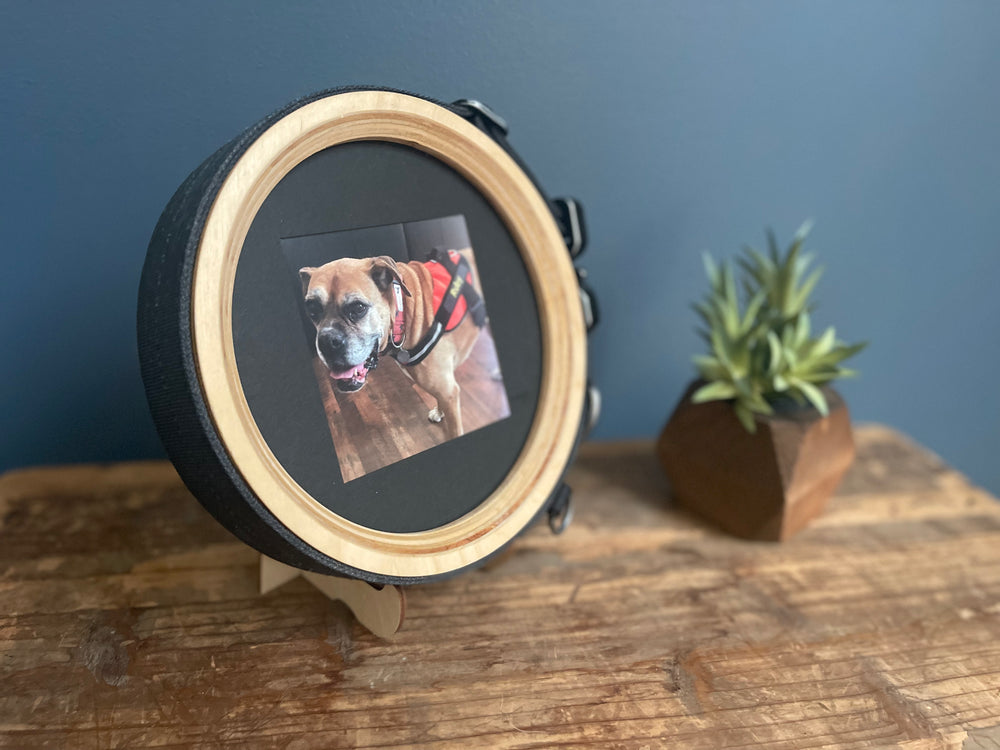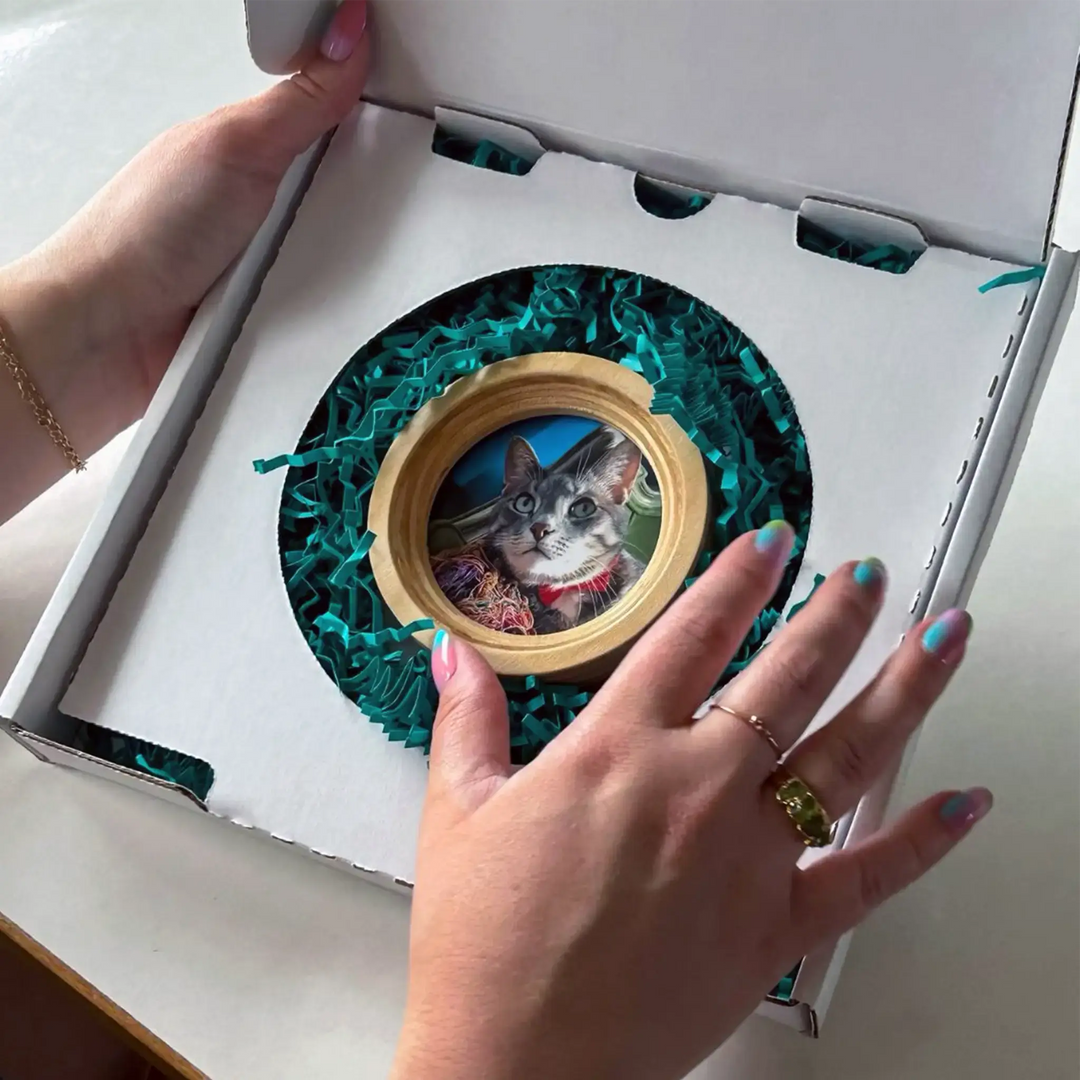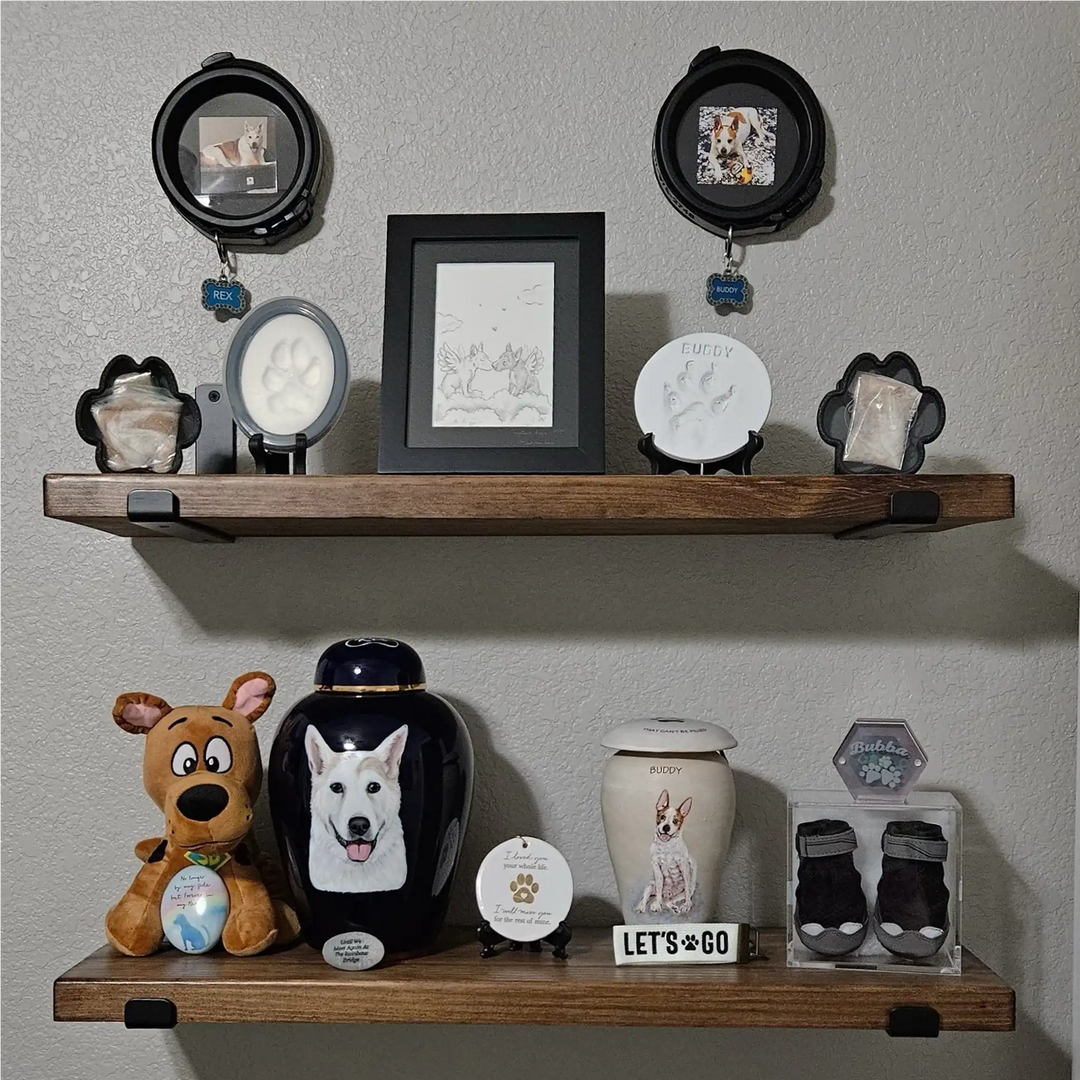What Is Anticipatory Grief? How to Cope When You Know Goodbye Is Coming
Anticipatory grief is the grief we experience when we know the loss of our beloved pet is imminent. It can occur when a pet has been diagnosed with a terminal illness, is aging, or their health is declining. This grief can be just as intense, if not more so, than the grief we feel after their passing.
Here are some helpful ways to cope during this emotionally challenging time:
-
Acknowledge Your Feelings
It’s okay to feel sadness, fear, anger, or even guilt. Acknowledging these feelings is the first step in working through anticipatory grief. -
Cherish Your Time Together
Spend quality time with your pet doing things they enjoy. Whether it’s snuggling, going on short walks, or simply being together, these moments will be treasured. -
Create Lasting Memories
Consider creating a memory display like a Halo Frame that you can fill with their collar and a special photo. Having something tangible to honor their memory will bring comfort in the future. -
Talk About It
Whether it’s with a friend, a support group, or a therapist, talking about your emotions can help alleviate some of the weight you’re carrying. -
Prepare Practically
Consider your pet’s future care needs and make necessary arrangements, such as researching pet hospice options or speaking with your vet. Knowing you’re preparing for their end-of-life care can provide peace of mind. -
Honor Their Life
Think about how you want to honor your pet’s life after their passing. What meaningful rituals or ceremonies would bring you comfort?
Remember, anticipatory grief is a normal and natural part of the process when we know our pets' time with us is limited. Allow yourself to feel, but also be gentle with yourself as you navigate this challenging chapter.
Thoughts on Anticipatory Grief Related to Pet Loss From Lap of Love Veterinary Hospice
The content on this blog is not to be taken as advice. All information posted is for informational and educational purposes. It is not intended as a substitute for professional advice. Whisker & Fang management and staff are not responsible for how the information found here is used. If you need help, please seek professional counsel from a mental health professional.






Leave a comment